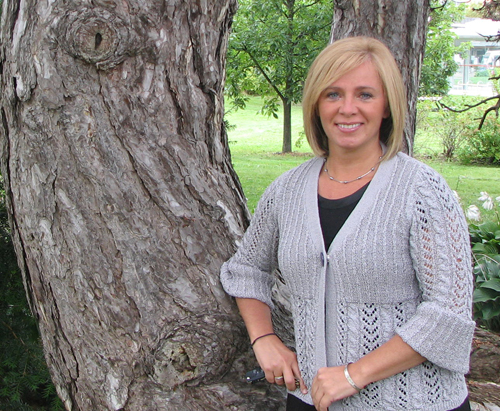
Today is World Mental Health Day. Every year on Oct. 10, the World Federation of Mental Health, the World Health Organization and other groups try to raise awareness about mental health issues. Public health officials around the globe are talking today about what their governments and health organizations are doing in prevention, promotion and treatment services. This year’s theme is the elderly and mental health.
Those discussions are happening here in Guelph too, encouraged by the local chapter of the Canadian Mental Health Association (CMHA), which relies heavily on United Way funding to support programs targeted at prevention and early intervention.
“A majority of the funding we receive from the government is for treatment for people who have already been identified as needing help,” says Helen Fishburn, director of access and engagement. “If we didn’t receive the United Way funding, we wouldn’t be able to run the valuable programs that we have aimed at preventing people from developing serious mental health issues. The United Way campaign is invaluable to us.”
Last year U of G raised just over $600,000 for the United Way Guelph Wellington Dufferin campaign, which hit a record-breaking $3.29 million for local organizations. Of that funding, close to $80,000 went towards three CMHA programs, two of which are geared towards prevention.
“Our prevention programs are focused on reducing the stigma so people identify issues within themselves and feel comfortable asking for help,” says Fishburn. “The longer a person stays silent, the more these mental health issues will grow and have a bigger impact on their health and well-being. Early intervention is crucial.”
One way CMHA strives to normalize mental health issues is through its community development and education services. Last year this program received just over $28,000 from United Way to help educate and raise awareness about mental illness. With this funding, they were able to reach 2,228 people by helping to organize activities for National Mental Health Awareness Week, World Suicide Prevention Day and Guelph’s own mental health awareness day.
“We went into classrooms to do presentations, provided speakers for events, created newsletters and articles, conducted training workshops and set up information booths related to mental health and suicide awareness,” says Fishburn.
Another important prevention and early intervention program, which runs mostly on United Way funding, is Youth Talk, a peer-to-peer initiative offered at high schools and community settings across Wellington and Dufferin counties. Youth Talk received $24,500 in United Way funding last year, which resulted in 5,283 school assemblies, classroom presentations, community awareness events and safe-talk training sessions.
“This program encourages youth to talk about depression, anxiety and suicide by providing speakers similar in age who go into the classroom and share their journey and experience with mental illness,” says Fishburn. “Everyone has a mental health issue of some kind. There isn’t a person out there who doesn’t experience anxiety on some level. This program is geared towards normalizing these feelings and letting people know that everyone struggles with some type of challenge or issue and working through it in a healthy way is important so it doesn’t fester and grow.”
Last year’s United Way donations also went towards Spark of Brilliance, an art-based recovery program for people with a serious mental illness. The program received $27,210 from the campaign, which helped to provide art workshops where people living with severe, long-term mental illness could express themselves creatively.
This unique program was established by Judith Rosenberg, a Guelph woman, after her son’s career as an artist was interrupted by mental illness. By providing an instructor, supplies and a location to be with others also living with a mental illness, Rosenberg has said she hopes people will feel empowered through their creative experiences.
In addition to the art workshops, Spark of Brilliance also offers horticultural therapy by providing people with the opportunity to do gardening in various locations across the counties, adds Fishburn. “It’s a way for people with mental illness to come together and find alternative ways of healing and coping.”
U of G runs the county’s largest workplace campaign, so CMHA and other agencies rely on the United Way funding generated on campus, says Fishburn. But she adds that U of G also supports CMHA in other ways.
The organization works closely with the U of G’s Counselling Services when it comes to providing students with specialized treatment. “The University’s Counselling Services is often the first place students go when they are struggling with mental illness,” says Fishburn. “Between the ages of 18 and 25 is when mental illnesses such as psychosis often begin, so it’s important people have that resource.”
U of G faculty have supported the local CMHA through their involvement in creating and running its new program, Help Now, which is aimed at people who have been victimized by sexual abuse and perpetrators of sexual abuse, adds Fishburn.
Finally, she says CMHA also has a number of U of G volunteers who join the organization as part of their co-op placements or because they just want to give back to the community. “We are very fortunate to have the University of Guelph in our neighbourhood. We have really benefited from the relationships that we have created.”